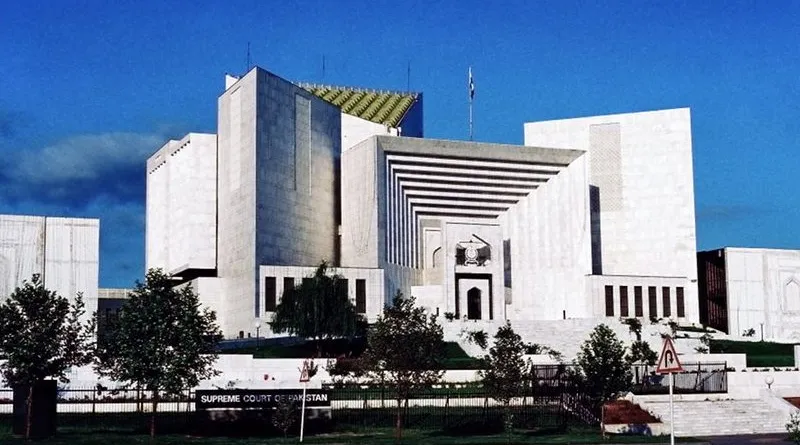ISLAMABAD: A 13-member full-court bench of the Supreme Court has been formed to hear the Sunni Ittehad Council’s (SIC) reserved seats case on June 3. Chief Justice of Pakistan Qazi Faez Isa will head the bench. However, Justice Musarrat Hilali will be absent due to illness.
On May 6, the Supreme Court (SC) suspended the Election Commission of Pakistan (ECP) and Peshawar High Court’s (PHC) verdicts regarding SIC reserved seats. The three-member bench, led by Justice Mansoor Ali Shah and including Justices Muhammad Ali Mazhar and Athar Minallah, suspended the decisions related to the allocation of reserved seats to other political parties.
Justice Mansoor Ali Shah stated that the case was scheduled for hearing and that the ECP and PHC verdicts were being suspended. He clarified that the suspension applied only to the allocation of additional seats and emphasized the importance of accurately representing the people’s mandate in Parliament.
Previously, the Peshawar High Court (PHC) had dismissed petitions from the Sunni Ittehad Council (SIC) concerning reserved seats in assemblies.
ECP Verdict:
The Election Commission of Pakistan (ECP) had earlier rejected SIC’s petition seeking the allocation of reserved seats following a ‘merger’ with Pakistan Tehreek-e-Insaf (PTI). The ECP ruled that SIC was not entitled to reserved seats due to “non-curable legal defects and violation of a mandatory provision regarding the submission of a party list for reserved seats.”
The ECP stated that the National Assembly seats would be allocated based on proportional representation of political parties according to the number of seats won.
Reserved Seats:
The election commission distributed reserved seats for women and minorities among various political parties. In the Khyber Pakhtunkhwa Assembly, one reserved seat each was allocated to Jamiat Ulema-i-Islam Pakistan, Pakistan Muslim League-Nawaz (PML-N), and Pakistan People’s Party (PPP). In the Sindh Assembly, reserved seats for women were allocated to Muttahida Qaumi Movement-Pakistan (MQM-P) and PPP, with PPP’s Samita Afzal and MQM-P’s Fouzia Hameed elected on these seats. Additionally, PPP’s Sadhu Mal alias Surinder Valasai secured a minority seat in the Sindh Assembly.
The ECP allocated three reserved minority seats to PML-N, PPP, and JUI-F, which were claimed by the Sunni Ittehad Council. PML-N’s Neelam Meghwar, PPP’s Ramesh Kumar, and JUI-F’s James Iqbal were elected on these seats.
SIC Reserved Seats:
PTI candidates ran as independents after the Supreme Court upheld the ECP’s decision, deeming its intra-party polls “unconstitutional” and revoking its claim on the electoral symbol ‘bat’. According to the Constitution, reserved seats are allocated to political parties based on the number of their lawmakers elected on general seats. The ECP had already received the priority list of candidates from parties before the February 8 polls.
This year, the situation differs from previous elections, as the largest group of lawmakers are independents who cannot claim reserved seats.
In total, there are 346 reserved seats for women: 60 in the National Assembly, and 66, 29, 26, and 11 in the provincial legislatures of Punjab, Sindh, K-P, and Balochistan, respectively. Additionally, there are 10 reserved seats for minorities in the National Assembly, and eight, nine, and three in the Punjab, Sindh, and Balochistan assemblies, respectively.


